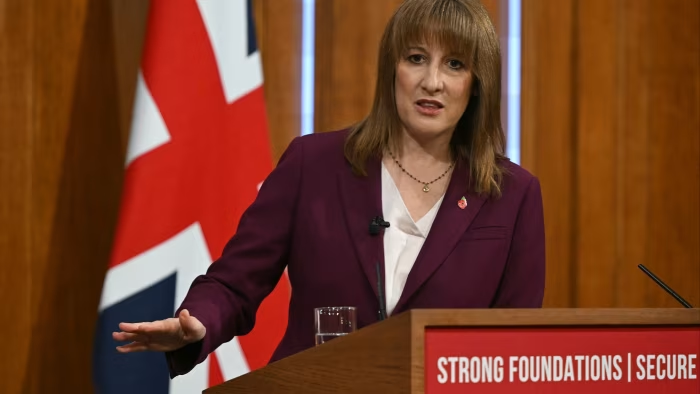Unlock the Editor’s Digest for free
Roula Khalaf, Editor of the FT, selects her favourite stories in this weekly newsletter.
The number of people who paid the highest rate of income tax topped 1mn for the first time in 2024-25, after long-frozen thresholds dragged 720,000 people into the additional rate band, new data shows.
If the top 45 per cent tax rate had moved in line with inflation it would be worth £211,562 today and would exclude two-thirds of people currently paying it, according to calculations by Bowmore Financial Planning, an advisory firm, underlining the impact of the existing freeze ahead of the autumn Budget.
A freedom of information request it submitted to HM Revenue & Customs showed 720,000 people paid the 45 per cent additional rate in the 2024-25 tax year on income above £125,140, but below £211,562. A further 385,000 people who had income above £211,562 in 2024-25 paid the additional rate, the FOI showed.
“The way that this stealth tax has operated for 12 years means more and more people are being dragged into paying the highest rate of tax,” said John Clamp, chartered financial planner at Bowmore Financial Planning.
“When the 45 per cent rate was introduced, it was meant for those on what were then the very highest salaries — the equivalent of over £210,000 today. Now, it’s hitting people earning almost £100,000 less than that.”
Clamp added that higher earners often had higher costs and many people were reluctant to boost their earnings if, as a result, they fell into the additional tax rate band.
“It’s perhaps unsurprising productivity is stagnating. If extra work barely boosts take-home pay because of frozen tax bands, people are less inclined to work longer hours or push themselves — and that ultimately drags on the economy,” he said.
The additional rate of income tax was introduced as an emergency measure in 2010 to help raise extra money following the global financial crisis. It was originally set at 50 per cent for incomes over £150,000. The rate was reduced to 45 per cent in 2013 and in 2023 the threshold was lowered from £150,000 to the current £125,140.
Since April 2022, the government has frozen several allowances and tax thresholds, including income tax thresholds, rather than raising them in line with inflation. The move has increased tax receipts as higher pay tips more workers either into the tax system or on to higher rates, a phenomenon known as “fiscal drag”.
The freeze is set to remain in place until 2028, but many commentators expect chancellor Rachel Reeves to extend it at the Budget on November 26, as she tries to fill a fiscal hole of between £20bn-£30bn.
In a speech on Monday, Reeves left open the question of whether Labour would break its manifesto promise not to raise income tax rates.
Asked if she was prepared to break it, even if that might cost the party the next general election, Reeves said: “We have got to do the right thing.”
She added: “If you’re asking what comes first, the national interest or political expediency, it’s the national interest every single time for me and it’s the same for Keir Starmer too.”
The Treasury said: “The UK’s income tax system is highly progressive with an internationally high personal allowance. These figures relate to the previous government’s 2022 Autumn Statement. This government inherited the previous government’s policy of frozen tax thresholds and lowered additional rate threshold.”
Given the large amount of money that Reeves needs to raise, many tax experts believe she will decide to raise revenue by making changes to income tax, either by raising rates or lowering thresholds.
HMRC’s statistics estimate a 1p increase in the basic rate of income tax would raise £8.2bn from those liable to this rate in 2028-29, while a 1p increase would raise £2.1bn on higher-rate taxpayers and £230mn from additional-rate taxpayers.
Gary Ashford, partner at Harbottle & Lewis, a law firm, said he was “struggling to understand why you would have made [Monday’s] speech if you weren’t going to raise income tax”.
“I do think we could end up with her choosing income tax, as whatever way you try and do the maths, you’re not going to get anywhere close to what she needs without it.”
Alongside big changes to income tax, he predicted a complicated Budget with “multiple measures”.
